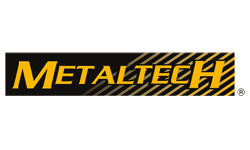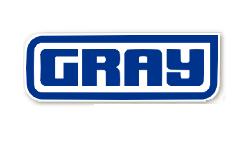15 ERP Price Factors to Know Before Buying an ERP
Do you want a detailed, accurate ERP price breakdown? With over 20 years of expertise in implementing and customizing Epicor ERP software, EC Solutions provides expert advice on ERP budgeting. Find out all about the costs, hidden and not, of ERP implementation.
EC Solutions, Providing ERP Services to Manufacturers and Distributors since 2004
15 Factors Impacting the Price of an ERP System: Breakdown of Project Costs
Work out your ERP project price with these 15 key cost factors. If you need help establishing an ERP implementation budget, do not hesitate to consult our specialists.

1. ERP Software Selection
There are many ERP platforms on the market, but few specialize in specific sectors, as Epicor does for manufacturers and distributors. Considering your business needs before buying an ERP solution is essential. We suggest you look at some of our ERP comparison studies to help you make the right choice.
• Distribution sector: Epicor Prophet 21 vs SAP business One
• Manufacturing industry: Epicor ERP Cloud vs Dynamics 365
2. ERP Deployment Model
The type of deployment also impacts the average cost of an ERP system. According to Panorama Consulting Group's 2024 ERP study, around 78,6% of companies choose a cloud-based SaaS deployment. The cloud enables organizations to save on a number of fronts, such as ERP software price, support, upgrades, IT security, and more.
However, local or hybrid ERP deployment is also possible for a higher fee. Do not hesitate to consult our guide if you're hesitating between a cloud or on-premises deploment.
3. Type of Software License
There are different types of licensing, such as perpetual licensing or the subscription model. These licenses are generally linked to the deployment model mentioned above. For example, cloud ERP costs less as they are typically subscription models and give the user access to the application without further actions.
For hybrid and local deployment, the license fee is higher initially, and annual maintenance is required for access to support and ERP upgrades.
4. Material Expenses
If you're planning an on-site deployment of your ERP, you'll also need to consider hardware costs in your ERP budget.
• ERP software cost
• Server purchase
• Cybersecurity solutions
• Server, network and workstation maintenance
5. ERP System Personalization
For most organizations, from small businesses to supply chain giants, allocating a budget to customize the ERP is necessary. That means all the development work involved in tailoring the application to your requirements.
6. Industry
Some industries, such as the manufacture of complex parts for highly regulated sectors, will also see the cost of ERP rise. Why? Because compliance needs and the number of functions required influence the ERP price.
7. Additional Functions and Modules
The addition of advanced functionalities and ERP modules should also be considered, depending on the company needs and the approach used for the initial deployment (Big Bang vs Phased).
8. Integration with Other Systems
The number of solutions your new ERP needs to integrate increases the complexity of your ERP project. The ERP implementation cost includes a price for a certain number of billable hours. The more complex your project, the longer it will take, the higher your ERP budget.
9. Data Migration
Another crucial element to consider in the budgeting process is ERP data migration. This can either be handled by the customer or the integrator for an additional investment. We're talking about data extraction, transformation and loading (ETL), and data cleansing services to ensure data integrity in the new ERP system. Dealing with a data conversion specialist ensures a secure transfer, which is paramount to the success of your ERP implementation.
10. ERP Cost per User and Externa Interfaces
The vast majority of ERP suppliers offer per-user pricing. You'll need to consider this cost when preparing a budget for an ERP system. In addition to the number of users, external interfaces (CRM, financial or accounting systems, e-commerce platform if you sell products online, HR sytems, etc.) also impact ERP implementation costs.
11. User Training
ERP user training is a crucial step in ERP implementation project management. The cost is higher when a company calls in a professional, but it also affects productivity, as employees have to take time off work to attend training.
12. ERP Services Contract
Deploying an ERP system requires personalized support to make the most of your solution. Professional implementation services typically include:
• Review of business processes
• Training
• Configuration assistance
• Assisted pilots
• Support with application deployment (Go Live)
These phases require an investment of integrator resources, which are paid for by the hour. Following deployment, ongoing investment is vital to ensure the level of use of the solution remains high. We recommend frequent updates to ensure you always benefit from new technological developments. For example, the integration of AI into Epicor Kinetic thanks to the Grow AI portfolio and Epicor Prism.
13. Internal Costs
The involvement of an in-house project team is also an aspect that shouldn't be overlooked when assessing the ERP price. A drop in productivity is to be expected as your project team dedicates part of its time to the ERP project during implementation. Although this doesn't add any expenses to the project, it is still an internal cost to plan for.
14. Discontinuation of Previous System
There are several other costs associated with service termination. For example, in the event of early termination, if your service contract has not expired. If your previous system was hosted on-site, you may also encounter costs associated with decommissioning or reassigning infrastructure (servers, hardware, etc.). So, always take the time to check your contractual obligations before launching a new project .
15. Total Cost of Ownership of an ERP System
To get a general idea of how much your ERP software will cost you in total, it's necessary to calculate the Total Cost of Ownership (TCO). The TCO calculation is as follows:
ERP purchase price + implementation + operating costs for 5 to 10 years
Estimate Your ERP Price with Our Cost Calculator
So, How Much Is an ERP System?
Want to find out how much ERP costs? An ERP purchase is not just about the cost of software and its implementation but also about customization, maintenance, and long-term support.
What’s more, according to Panorama Consulting’s 2024 ERP Report, around 33% of ERP implementations result in budget overruns. Of these, only a third have consulted specialists. Working with an experienced ERP consultant is crucial to establishing an ERP project budget that is as close to your reality as possible.
How Much Money Does ERP Save?
It’s impossible to put a precise figure on savings, as they depend on many factors. As a general rule, ERP enables organizations to:
- Optimize operational costs (process automation, fewer human errors, more efficient use of resources, etc.). According to Panorama Consulting’s 2024 ERP report, over 97% of companies that implemented ERP software have improved either key business processes or the majority of business processes.
- Improve efficiency by accelerating production and order processing times, enabling organizations to save time.
- Save on IT infrastructure as ERP centralizes information systems and reduces the number of stand-alone solutions.
- Save on inventory and supply chain management costs, such as warehousing, supplier management and excess inventory losses in manufacturing and distribution companies.
What Kind of Return on Investment (ROI) Can Companies Expect After Investing in ERP?
Epicor published a white paper on the ROI achieved by manufacturing companies that implemented the Epicor Kinetic solution. In this report, Epicor demonstrates that implementing ERP software:
- Improves employee productivity
- Reduces operational costs
- Increases net revenues
The report also illustrates that manufacturers can expect ROI up to 373% over 3 years, payback in just 9 months, and an average 14.2% increase in revenues.
How Much of Your Revenues Should You Allocate to ERP?
It all depends on the size of your business and your revenues — the higher your revenues, the lower the percentage. Some companies invest as little as one percent of their revenue in their ERP system.
However, manufacturing and distribution companies that are a little more dependent on their ERP solution should budget between 2% and 5% of their revenue.
Stay Within Your ERP Budget with EC Solutions
Work with an experienced Epicor consultant to ensure on-budget and successful implementation. Read our ERP case studies to discover how EC Solutions helped leading manufacturers and distributors with their many ERP projects.
If you need help establishing a budget, a project schedule, or determining which ERP to choose, our Epicor specialists are at your service.
Contact Our ERP Experts
Laval (Quebec), H7T 2H6









